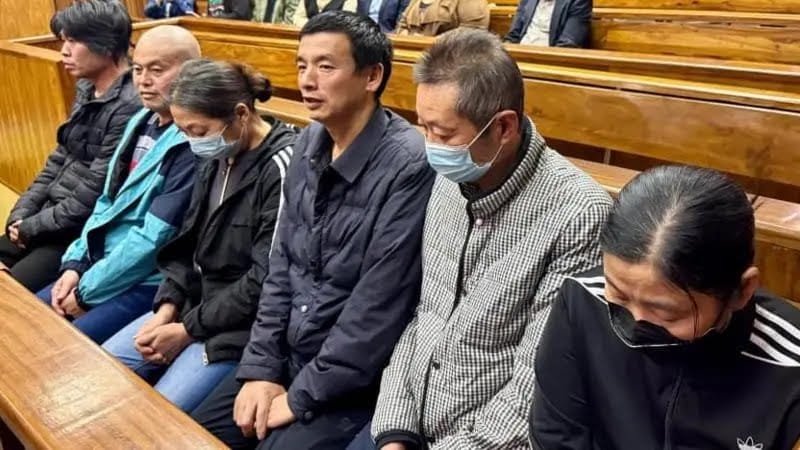A South African court has sentenced seven Chinese nationals to 20 years in prison each for running an illegal sweatshop where Malawian migrants, including children, were subjected to forced labour.
The group – Kevin Tsao, Chen Hui, Qin Li, Jiaqing Zhou, Ma Biao, Dai Junying, and Zhang Zhilian – were convicted on 158 counts of human trafficking, kidnapping, and violating labour and immigration laws.
The Raid and Shocking Discovery
The case dates back to 2019, when authorities raided a Johannesburg factory named Beautiful City after a tip-off from an escaped worker. Inside, they found 91 Malawian nationals, among them 37 children, confined and working in inhumane conditions.
Investigations revealed that the victims had been smuggled into South Africa in shipping containers and were forced to work 11-hour shifts, seven days a week, without safety equipment or proper training. Workers were paid far below the legal minimum wage and often had wages docked if they requested time off.
“They were not even allowed to leave the factory premises to buy food,” one survivor testified, describing the meals provided as “dirty and unfit for human beings.”
Authorities Respond
South Africa’s National Prosecuting Authority welcomed the judgment, describing it as a significant step in the fight against human trafficking.
“Human trafficking has become a scourge in our country. South Africa is seen as a source, transit, and destination for trafficking, partly due to porous borders,” said spokesperson Phindi Mjonondwane.
The Department of Labour, which participated in the original raid, also praised the ruling, urging closer cooperation among government agencies to combat illegal labour practices.
A Broader Challenge
Human trafficking remains a persistent issue in South Africa, which has long been a magnet for migrants from across the continent seeking work. Rights groups say victims are often lured with false promises of jobs, only to end up in exploitative or abusive situations.
The conviction of the seven factory operators marks one of the country’s most high-profile trafficking cases in recent years and is being hailed as a precedent-setting victory for labour and human rights.



